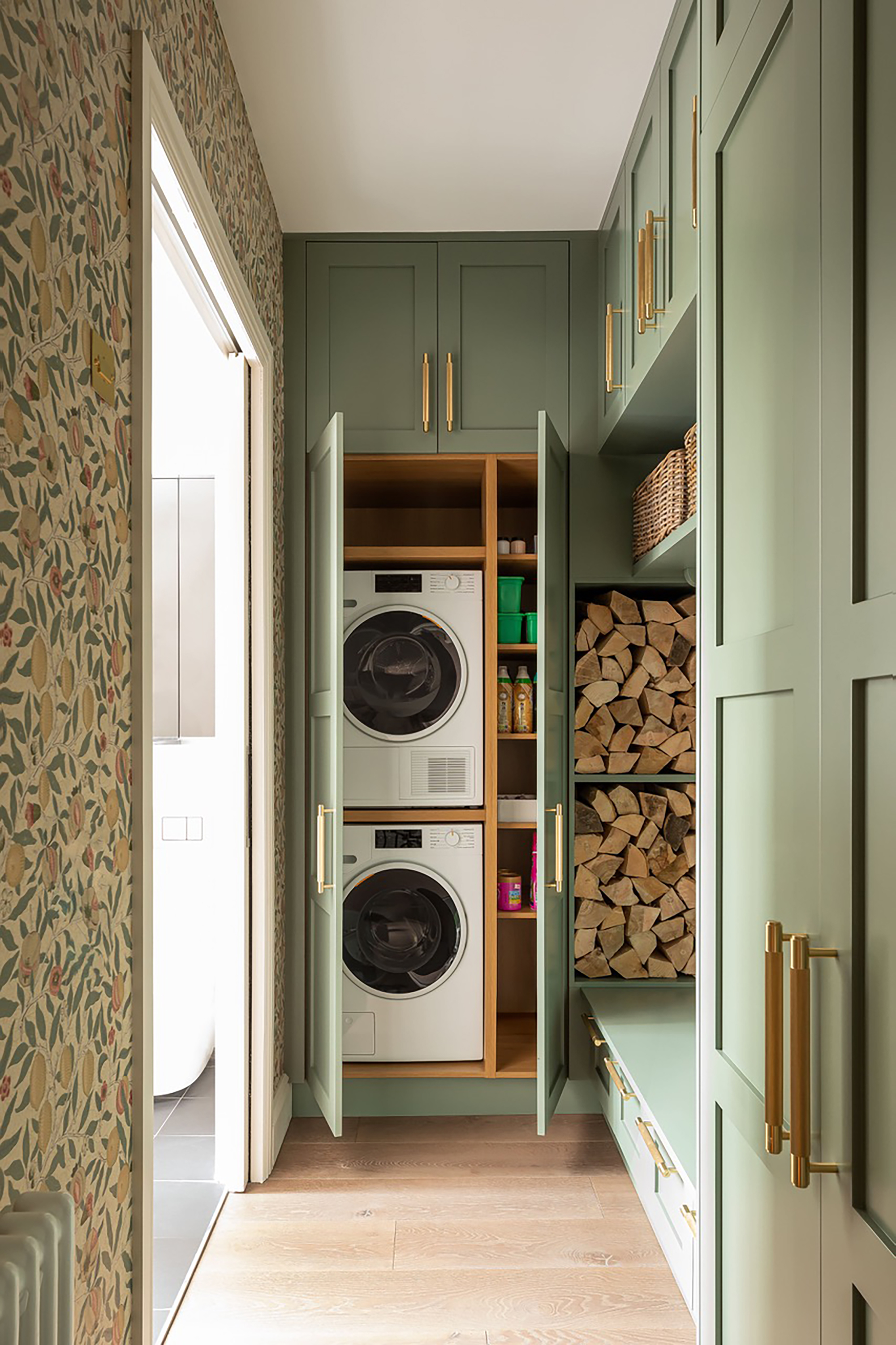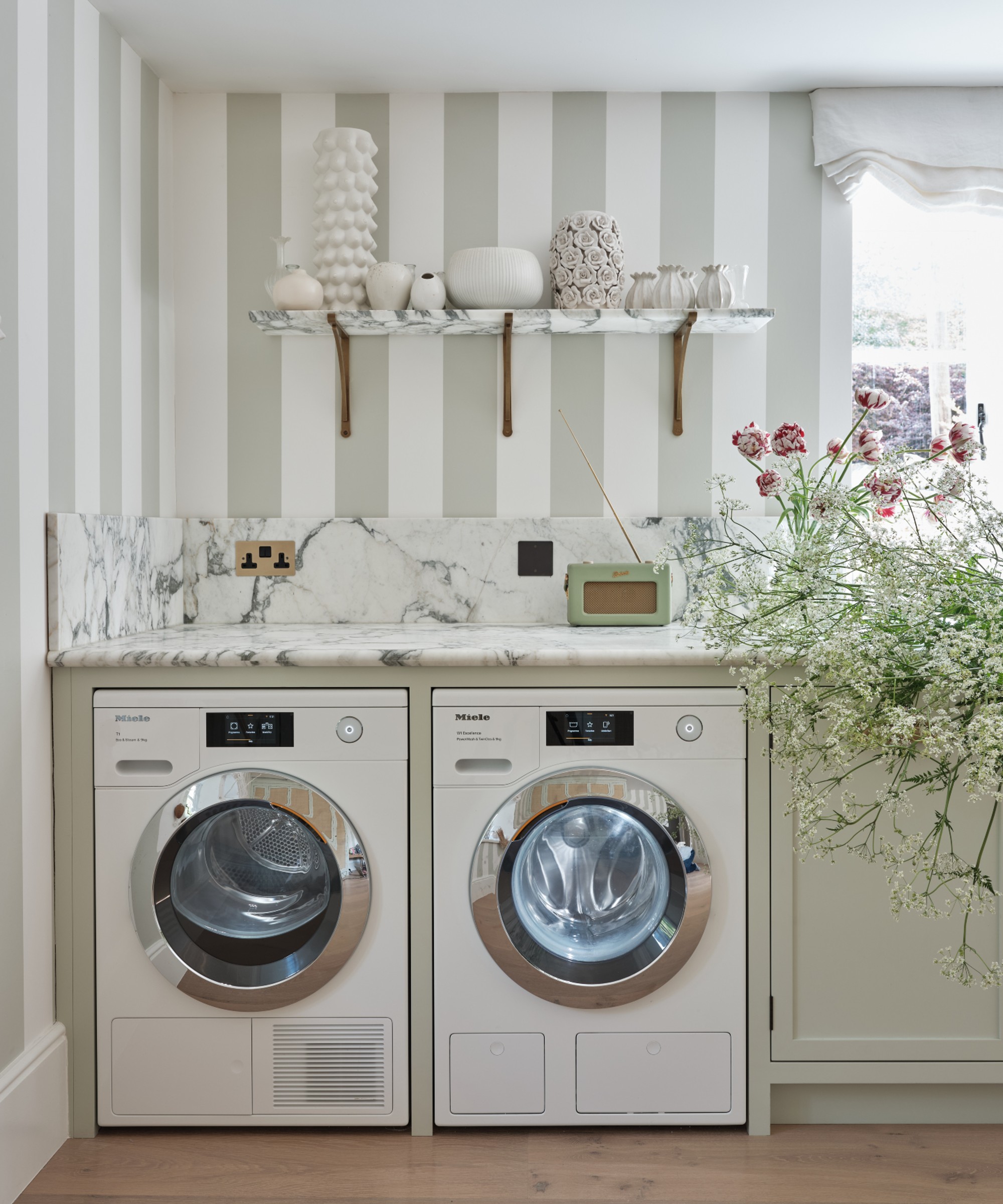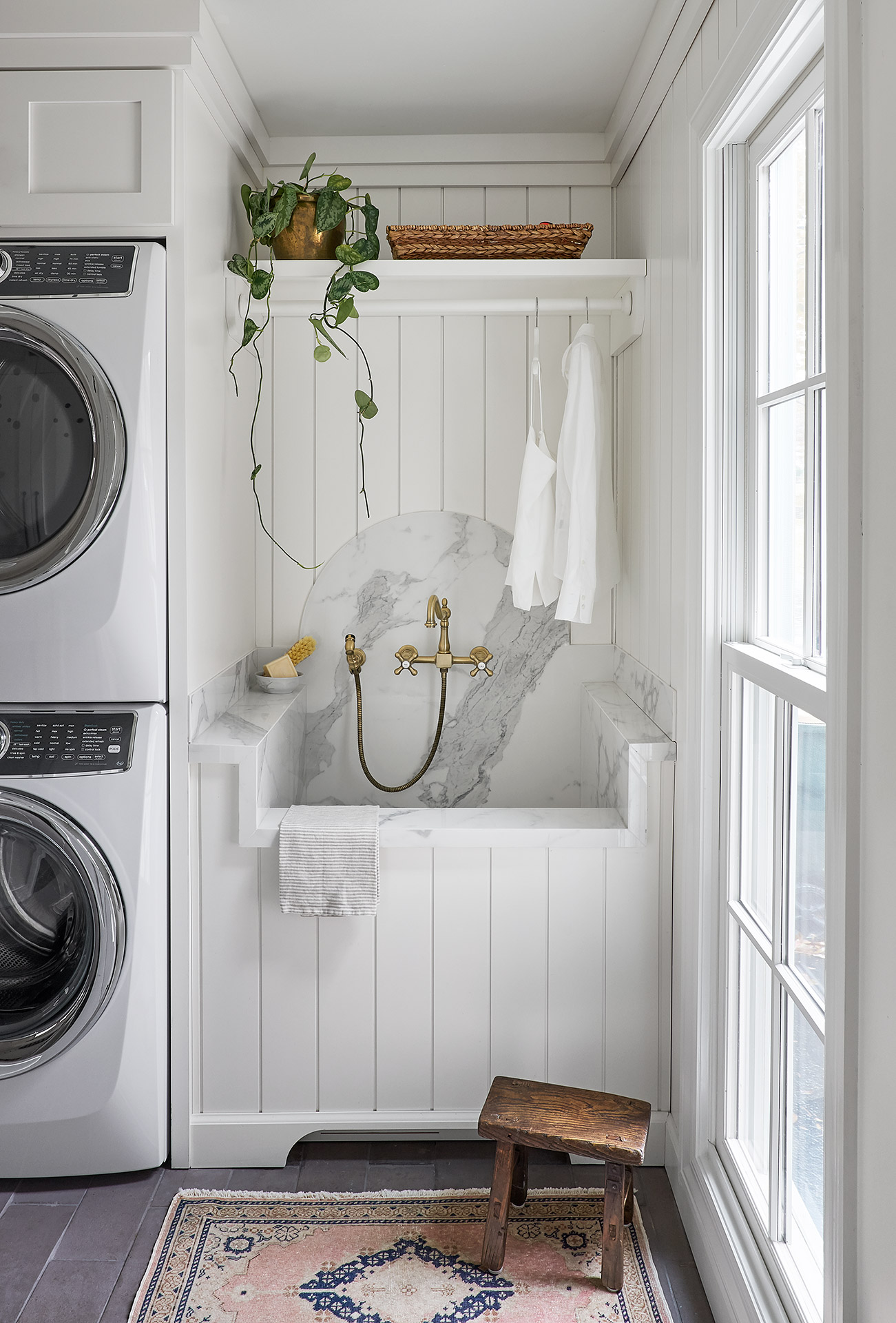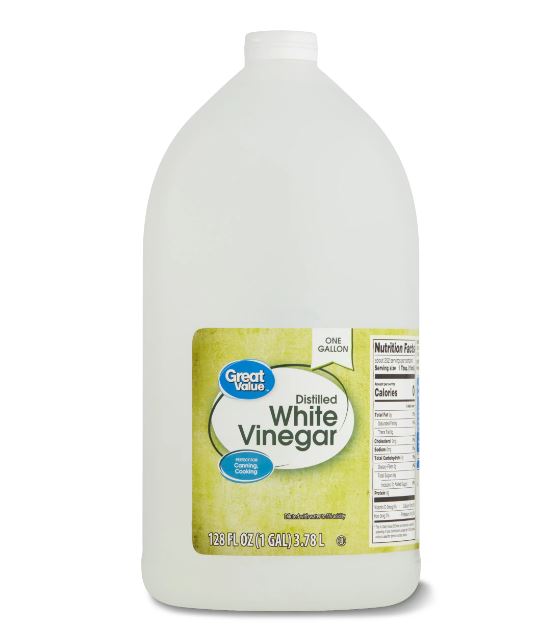When to add vinegar to laundry – pro tips to time it right
Laundry experts share when and how best to use this natural and residue-free alternative to traditional fabric softeners


Design expertise in your inbox – from inspiring decorating ideas and beautiful celebrity homes to practical gardening advice and shopping round-ups.
You are now subscribed
Your newsletter sign-up was successful
Want to add more newsletters?

Twice a week
Homes&Gardens
The ultimate interior design resource from the world's leading experts - discover inspiring decorating ideas, color scheming know-how, garden inspiration and shopping expertise.

Once a week
In The Loop from Next In Design
Members of the Next in Design Circle will receive In the Loop, our weekly email filled with trade news, names to know and spotlight moments. Together we’re building a brighter design future.

Twice a week
Cucina
Whether you’re passionate about hosting exquisite dinners, experimenting with culinary trends, or perfecting your kitchen's design with timeless elegance and innovative functionality, this newsletter is here to inspire
White vinegar's neutral scent and robust cleaning abilities (and a lot of TikToks) have led many people to incorporate this kitchen staple into their laundry routines. Using white vinegar in laundry has various pros, from neutralizing odors and preventing towels from feeling scratchy to helping to remove stains and brightening dingy whites.
Another bonus is that it doesn't leave any chemical residues, ideal if you have sensitive skin.
Adding between half a cup and a full cup of vinegar is a technique many swear by, but when should you add it to your load when doing laundry?
When to add vinegar to laundry
Ocean Van, the owner of Long Beach laundry service Coco Laundry says that when and where to put vinegar in a washing machine depends on the type of washing machine you have. Here's what the pros suggest.

For top-loading washers
Laundry expert Ocean Van recommends adding vinegar during the rinse cycle in top-loading washers. 'This timing allows the vinegar to function effectively as a fabric softener and odor eliminator, contributing to fresher and softer laundry without potentially interfering with the detergent's cleaning action.
'Timing the addition of vinegar during the rinse cycle in top-loading washers is crucial. Users need to monitor the wash cycle progress and add vinegar when the machine reaches the rinse phase for optimal fabric care benefits.'
Pro tip: It's generally not advisable to mix vinegar directly with detergent at the beginning of the wash cycle in top-loading washers, as this combination can reduce the effectiveness of cleaning agents and fabric care products.
Design expertise in your inbox – from inspiring decorating ideas and beautiful celebrity homes to practical gardening advice and shopping round-ups.
For front-loading washers with automatic detergent dispensers

Ocean Van explains that in front-loading washers equipped with dispensers, vinegar can be added to the fabric softener compartment in advance.
'The washer dispenses vinegar automatically during the rinse cycle, simplifying the process and ensuring optimal integration of fabric softening and odor removal,' Ocean says.
As with top-loading washers, it's best to avoid directly mixing vinegar with detergent in front-loading washers with separate compartments. Adding vinegar to the fabric softener compartment allows it to work effectively without interfering with the detergent's action during the main wash.

'A trick I use is to pause the washer before the final rinse and pour the vinegar solution directly into the drum. This helps it dissolve more thoroughly,' says Sam Thomason, a DIY expert and the founder of blog Simple Everyday Mom. 'You'll also want to consider when to add vinegar to your detergent. Since vinegar is acidic, I've found it works best as a replacement for fabric softener rather than mixing with the main wash. Adding it directly to the rinse cycle allows it to freshen fabrics without interfering with the cleaning power of the detergent.
'You can also let stained clothes soak in a vinegar/water mixture before washing to really blast tough smells and stains,' comments Sam Thomason. 'I always go with plain white vinegar over other types. It has that clean, crisp smell without being overpowering, like some scented varieties. It's inexpensive, effective, and earth-friendly.'

Sam Thomason is a blogger and mom, and as well as being an expert in DIY and crafts, Sam describes herself as a laundry ninja, using vinegar as her secret weapon. Sam says that balancing life’s messes, from paint splatters to grass stains, has taught her exactly when and how to use vinegar to turn laundry woes into wins.
FAQs
Is white vinegar better than fabric softener?
The choice between white vinegar and fabric softeners depends on what you like in terms of scent – obviously, fabric softeners give you a range of fragrances, while vinegar will soften fabrics with a neutral scent. If you prefer using vinegar but want a subtle scent, you can combine vinegar with essential oils.
You might also prefer white vinegar if you have sensitive skin, as it leaves no residue on clothes which can sometimes be an issue with store-bought fabric softeners.
Alternatively, you could try apple cider vinegar, suggests Ocean Van. 'With its milder scent, it offers a subtler aroma in laundry without compromising cleaning efficiency.'
If you live in an area with hard water, you may want to add more vinegar to counteract mineral buildup and enhance cleaning efficacy.

Millie is a freelance writer and qualified interior designer based in Sheffield. She has many years of experience in the world of content and marketing, and previously worked as the head of Solved at Homes & Gardens. Before that, she worked in SEO at News UK in London and New York. She has a first-class degree in French and Italian from UCL and loves to weave decor into her home that reminds her of time spent living and studying in Bologna. Millie believes a clutter-free space that you love coming home every day is the best secret weapon for our well-being.
